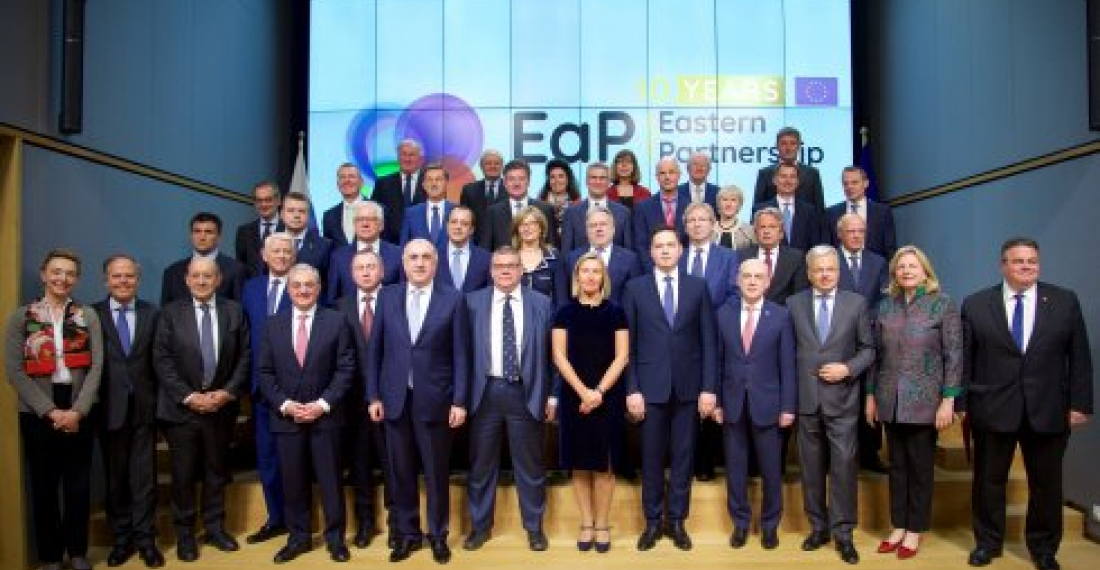A meeting of the foreign ministers of the Eastern Partnership countries, together with their EU counterparts, was held in Brussels on Monday, 13 May under the chairmanship of the EU High Representative for Foreign and Security Policy, Fedreica Morgherini.
The Eastern Partnership (EaP) ministerial meeting brought together EU foreign ministers and the foreign ministers from the six Eastern Partnership countries (Armenia, Azerbaijan, Belarus, Georgia, the Republic of Moldova and Ukraine).
The meeting was part of a programme of events marking the 10th anniversary of the Eastern Partnership.
A statement with the chair's conclusions, issued at the end of the meeting, said "This Partnership benefits us all; 10 years on from its creation, it has proven to be a success for our citizens. This positive experience enables us to continue to work jointly and in a spirit of close cooperation to ensure our societies can fully reap all the benefits, from increased prosperity to democracy, stability and security that come from such a Partnership."
You can read the statement in full on the EEAS website, here
This evening, the leaders of the Eastern Partnership countries will be the guest of EU Council President, Donald Tusk, at a celebration dinner in Brussels.
source: commonspace.eu
photo: Participants at the Eastern Partnership Ministerial meeting held in brussels on 13 May 2019 (picture courtesy of the European External Action Service press office)







